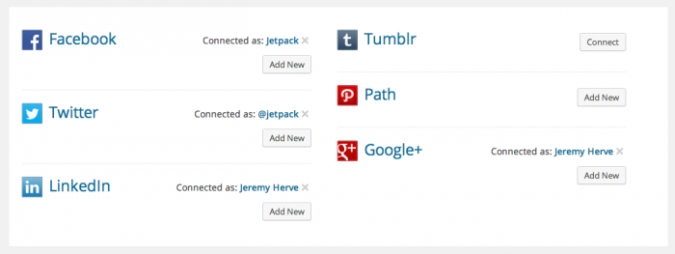
Everyone needs to unplug sometimes.
But when your work involves maintaining a WordPress site, taking a vacation can be hard work. You can’t just up and walk away. Well, you could, but your business would suffer and we really don’t want that to happen.
Yes, it will require some planning ahead if you want to take a vacation, but the effort you put in to keep your site active will pay off by:
- Ensuring your business stays on track
- Giving you the peace of mind to actually relax during your time off
So, without further adieu, here are some things you need to do to ensure your site stays active and engaging in your absence:
Create an Editorial Calendar

How many times have you said, “I should plan out my posts in advance,” but never actually got around to doing it? Well, if you want to take some time off, you have to do it. But don’t worry, it’s not as daunting of a task as it sounds.
To start, sit down and brainstorm some topic ideas. Hopefully, you already have an “idea file” with some potential blog posts already on your hard drive. Next, if you work thematically, come up with a theme for the weeks ahead. Do you want to cover one topic in depth? Do you want to provide general overviews of many topics? Make a decision and brainstorm accordingly.
Once you have some solid ideas, develop headlines for these blog posts. Make them really eye-catching and clickable. Then it’s time to bust out a calendar (I recommend Editorial Calendar). What is your regular posting schedule? If you don’t have one, now’s the time to come up with it. Take your titles and plug them into the calendar. You’re going to want to plan for posts while you’re on vacation, of course, but also leading up to and immediately following your time away. That way you don’t have to rush to crank out a post while you still have sand in-between your toes.
Planning ahead feels like a lot of work because it is a lot of work. But you’ll be doubly rewarded by how much you’ll actually get to relax while on your vacation instead of having to check in on your site every few hours.
Solicit Guest Posts
Since you’ve made an editorial calendar, you’ll be able to see if there are any openings in your schedule. If there are, you can ask some of your colleagues to write up guest posts for you.
Guest posts give you the opportunity to take a break from writing a bit and establish your blog as a go-to place for expert insight. That being said, make sure you only ask those who are true authorities in your niche to guest blog for you. Posting any old thing won’t boost your credibility and could actually hurt your reputation with your current readers.
Write and Schedule
Your editorial calendar is pinned down. Now you just have to write those blog posts. A pesky step, I know, but essential.
Set aside some time to just sit down and write. Try not to get distracted by all the much more exciting things to do on the Internet and commit to completing a blog post at each sitting. For optimum productivity, avoid inserting links, images, and such during the drafting phase. This will only distract you from your train of thought. Instead, sit down and get the words out. Then, while revising your posts, add links, images, and other formatting elements.
Once you’re satisfied with your draft, consult your editorial calendar and schedule your finished post for publication. Check and double check that date and time — you don’t want to make a mistake here because your social media posts will depend on your blog post going up at the right time.
Enable Publicize

You do have Jetpack installed, right? If not, I’ll wait here while you go do that.
In case you’re not familiar, Jetpack is basically a set of bundled modules that you can enable or disable as you see fit. A few examples of these modules include the ability to add shortcodes to your posts and pages, a spelling and grammar checker and the ability to insert easy-to-customize forms.
The one that will really help you out while you’re on vacation, however, is called Publicize. This module can be connected with your social media accounts so whenever a new post is published, a link to it is automatically shared to your followers and friends. You can even customize the message that is sent out with the link. The default is just the post title, so you may want to add a bit more than that for personality’s sake.
While Publicize shouldn’t make up the entirety of your social media marketing plan, it definitely helps to ensure your followers find out the second a new post goes up. And that’s not a bad thing.
Blog Promotion via Social Media

As I said above, Publicize shouldn’t be your only method of engaging on social media — it’s merely a good starting point.
Before you head off on your getaway, you need to schedule some social media posts through a platform like HootSuite to ensure you get the word out about your blog posts and keep people engaged with your business. This means the standard, “Check out my blog post” type of status updates as well as general commentary about your industry, advice, insights, images, and whatever else you post on social media while on your standard schedule.
The idea here is to make it look like you’ve never left!
Consider Content Curation
A big part of keeping traffic headed to your blog — even when you’re not around — is to share interesting content other people in your industry have created. This is called content curation and it’s a great way to build your reputation as a thought leader, even when you’re not creating new things yourself.
Content curation is an excellent supplemental strategy to content creation and it can help you fill in the gaps while you’re away on vacation. Be sure to schedule plenty of social media posts sharing images, infographics, and articles that other people have created. Include a brief note about why you think these bits of content are relevant, too. Schedule posts (Buffer is a pretty useful tool for this) and be on your way.
Conclusion
When you run an online business and have an established web presence, it can be hard to step away from it all and take a full vacation. However, it’s not impossible. You just need to plan ahead. With a little bit of coordination and forethought, you’ll be able to take it easy for once, knowing your site is still chugging along in your absence.
Have you ever taken a blog vacation? If so, how did you prepare for the downtime? Or did you just skip town? I’d love to hear your thoughts.
Photo source: GollyGforce, photosteve101

dailybits
Something you have to check when you go on a holiday and schedule some blogposts is that your smartphone has the wordpress app and maybe an ftp-app.
Nothing worse, that a scheduled blogpost with some errors/wrong pictures/wrong links/…., that will stay like that until you come back from your holiday.
Tom Ewer
Thanks for your input 🙂